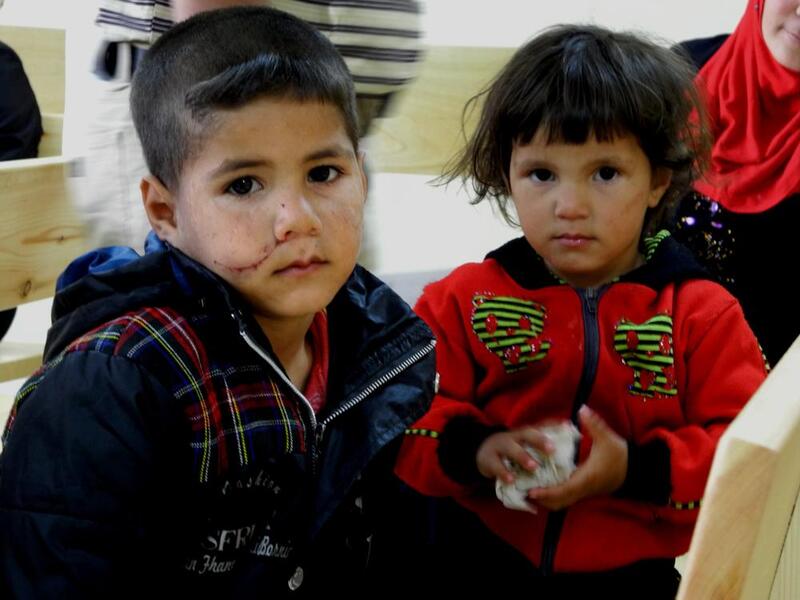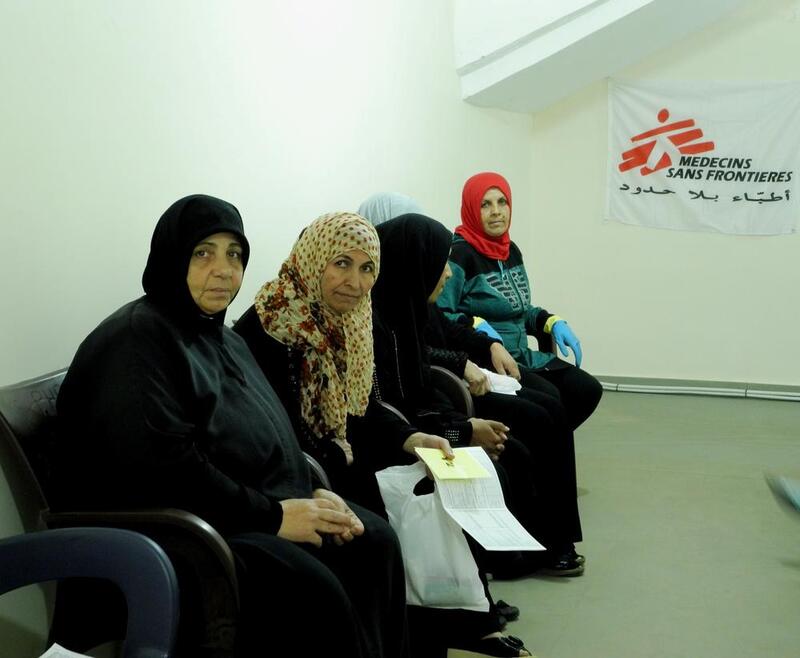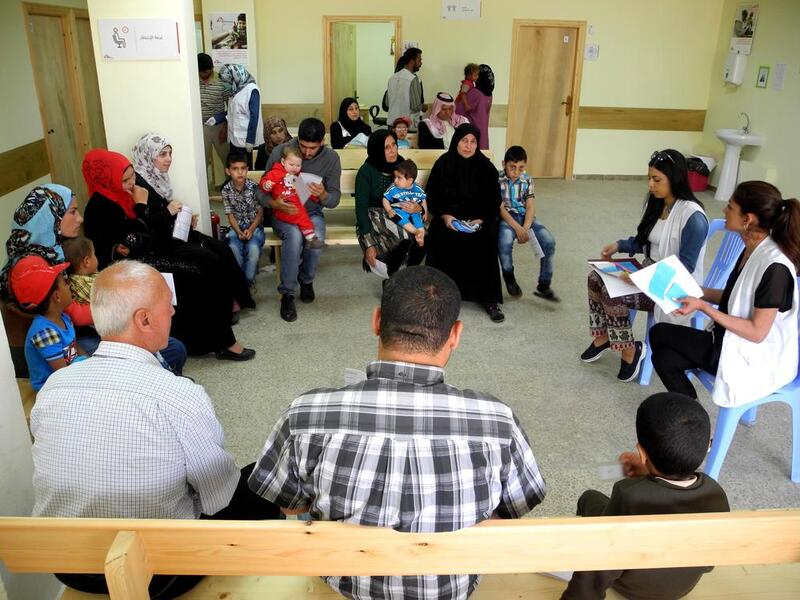Wadi Khaled: a high plateau, remote, a salient of Lebanese land sticking into Syria, poor and surrounded by military checkpoints. People have a hard time here, and that is as true of the Lebanese as it is of the Syrian refugees who have crossed the dried river beds to reach a place of safety, if not comfort.

Ilham and her husband Akram, are two Lebanese citizens living in Wadi Khaled, in Akkar district, northern Lebanon. Their living conditions are not any different from those of Bahria and Zahri, two Syrian refugees from Homs who have been living in Wadi Khaled for five years. Ilham and Akram, and Bahria and Zahri suffer the same. Akram and Zahri are unemployed and both, along with their respective wives, suffer from several chronic diseases requiring constant medical follow-up and medication. They met in Médecins Sans Frontières/Doctors without borders’ primary healthcare clinic in Jandula-Wadi Khaled.
Before MSF’s primary healthcare clinic was opened in Wadi Khaled, 61 year old Ilham and her husband Akram had to travel the 70 km from their home to Tripoli every couple of months for their medical appointments. This was despite their inability to often afford the fees for the trip or for the medical consultation. Since MSF’s clinic opened in their home town, managing their medical conditions has become a lot easier. “My husband and I have been visiting MSF’s clinic for six months. Here, we have a periodic medical check-up. We also get the medication we need for free. I feel like a heavy burden has been lifted from our shoulders. I no longer worry about not having enough money to buy medication. I no longer have to travel dozens of kilometers to see the doctor, given that the clinic is five minutes away from home”, says Ilham.

Wadi Khaled, which is considered among the poorest areas of Lebanon, was among the first Lebanese regions Syrian refugees moved to at the start of the Syrian crisis in 2011, given its proximity to some of the early conflict hotspots such as Homs. The Syrian crisis has had a huge toll on the area’s economy, after the northern border between Lebanon and Syria was closed and it led to a decrease in trade on which the area’s economy relied. That was accompanied by the decrease in the number of employment opportunities, which made life hard for the people in Wadi Khaled, for both Lebanese and Syrians.
Bilal Hassan, a Syrian refugee who moved to Lebanon four years ago, has also found living conditions difficult. He is a 37 year-old father of six, and unemployed. When his son Waleed had a cut on his face following an accident, the best option he had was to take him to MSF’s clinic, especially given the clinic was near his house. He could not afford to go to a private clinic or pay the transportation fees to go somewhere outside the Wadi Khaled area.
It’s the same experience for 28-year-old Lebanese citizen Zeinab. Her husband works in water distribution, but has not had regular employment. She brought her two daughters to the paediatrics department of MSF’s clinic in Jandula. “Whenever one of my girls used to fall sick, I would have to try to find US$20 to US$35 dollars to go to a private clinic. However, I often didn’t have that amount of money. I am happy that by coming here, I am able to treat my girls for free. The money earned by my husband from his intermittent employment is not enough to pay for food and rent, so how could we possibly buy medicine for our children?”
At the beginning of 2017, MSF opened a treatment centre for chronic diseases, which within months expanded to become a primary healthcare centre. Today, the centre provides treatment for chronic diseases and offers paediatric services, as well as mental health and health education services. The centre provides around 1,400 medical consultations a month, in addition to 120 mental health consultation, enabling the most vulnerable groups, including Lebanese and Syrian refugees, access to primary healthcare services.

About MSF :
Médecins Sans Frontières (MSF) is an international, independent, medical humanitarian organisation that delivers emergency aid to people affected by armed conflict, epidemics, natural disasters and exclusion from healthcare in almost 70 countries around the world. MSF offers assistance to people based on need and irrespective of race, religion, gender or political affiliation. When MSF witnesses serious acts of violence, neglected crises, or obstructions to its activities, the organisation may speak out about this.
Médecins Sans Frontières (MSF) began working in Lebanon in 1976 in response to the Lebanese Civil War, sending medical teams to the south of the country and Beirut. This was MSF’s first mission to a war zone.
For more info please contact:
Jinane Saad; Lebanon field communication manager
Mobile: 00961 3 116351
E-mail: [email protected];


